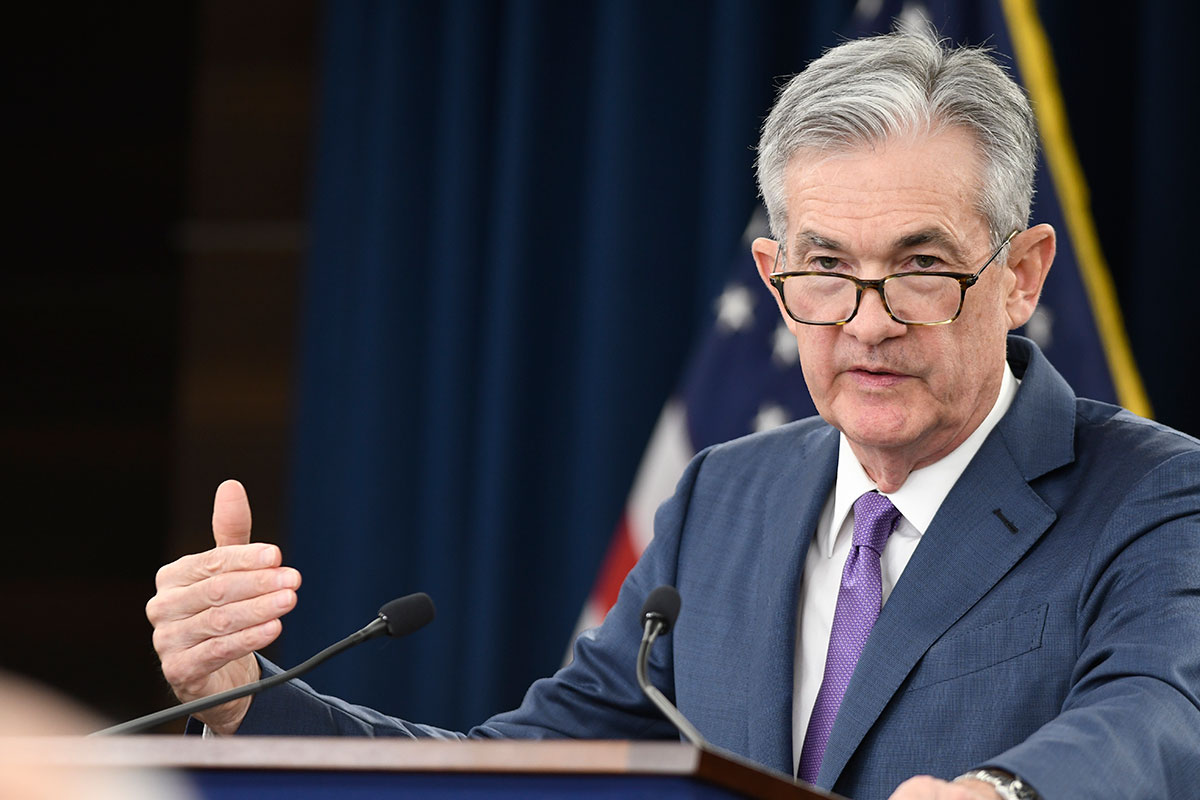The Fed does not follow the ECB on the green obsession

“We are not and will not be a climate policymaker,” assures the head of the US central bank, Powell. Lagarde's approach is instead the opposite: the ECB must intervene in favor of the ecological transition, also through an ad hoc monetary policy
Jerome Powell and Christine Lagarde have very different ideas about the role of central banks in the ecological transition.
COMPARING IDEAS
“We are not, and will not be, a climate policymaker ,” specified the former, chairman of the US Federal Reserve (FED).
“We need to incorporate climate change into everything we do: models, data, projections and analyses,” wrote the second, president of the European Central Bank (ECB). "Ultimately, we need to ensure that our monetary policy takes into account the impact of climate change."
WHAT POWELL (FED) THINKS
Powell thinks on the contrary that "decisions on policies to directly address climate change should be made by the elected branches of government", even if many environmental groups would like central institutions to intervene clearly in favor of decarbonisation, for example by raising the cost for banks to lend to the fossil fuel industry.
The FED is limiting itself to supervising the exposure of banks to financial risks linked to the effects of climate change: extreme weather events – such as fires, floods or long periods of drought – can in fact damage infrastructures and "jam" supply chains, creating losses for investors. "But without explicit Congressional legislation," President Powell said, "it would be inappropriate for us to use our monetary policy or supervisory tools to promote a greener economy or to meet other climate-based goals."
In other words: central banks make central banks, and politicians make politicians; to each his own profession.
WHAT LAGARDE THINKS (ECB)
If Powell sees a marginal role for the FED with respect to the ecological transition, Lagarde wants an interventionist ECB: "strengthening efforts to shift energy supplies towards cheaper renewable sources should help slow inflation", he wrote in the bank's blog last November 7th. While Powell distances himself from the climate policymaker label, Lagarde's speech expresses the need to “make our monetary policy fit for climate change” and to “pave the way towards a greener economy”.
THE ECB ON THE SIDE OF GREEN COMPANIES
A page on the ECB's website dedicated to climate change states that the institute supports “an orderly transition to a zero-carbon economy with measures that are within our mandate. This includes promoting the development of sustainable finance and creating incentives for a greener financial system."
In early February, the ECB announced that, from the following month, it would stop buying new bonds of private companies, with the exception of the bonds of those companies particularly attentive to climate and environmental sustainability. It will also continue to buy their green bonds – they are called that because they finance "green" projects – on the primary market.
Jo Richardson, an analyst at the Anthropocene Fixed Income Institute think tank, told Euractiv on that occasion that the ECB had been clear "that its main market interests will depend on the climate performance of bond issuers": the greenest companies will be favored, and the most emissive ones penalized.
In essence, the ECB wants to “gradually decarbonise its holdings in corporate bonds,” as reported by ItaliaOggi .
LITURI'S ANALYSIS
Giuseppe Liturri, economic analyst at Startmag, explained that “in order to promote the green transition, the ECB is willing to intervene heavily in the composition of the corporate bonds it holds in its portfolio, favoring the issuers most sensitive to the green . Too bad that the risk of so-called greenwashing , a classic coat of green paint to cheer investors, has been raised for some time. The same thing on the more delicate front of public bonds, for which there are fears of a dangerous rebalancing in favor of the government bonds of countries more driven towards decarbonisation".
Liturri then criticized the thesis of Isabel Schnabel, a German economist and member of the executive committee of the ECB, according to which "higher rates will make investments in renewable energy less profitable in the ecological transition, but this cannot constitute a 'scapegoat' to delay such investments. Indeed, it is only by containing inflation that the transition can be successful. In fact, price stability 'is a precondition for a sustainable transformation of our economy'.
The "dramatic" aspect, according to Liturri, "is that Schnabel is well aware of the limitation of her mandate, but she has tried to find a legal screen using the secondary objective constituted by 'supporting EU economic policies'" .
This is a machine translation from Italian language of a post published on Start Magazine at the URL https://www.startmag.it/economia/fed-bce-politiche-climatiche/ on Mon, 10 Apr 2023 05:14:45 +0000.
